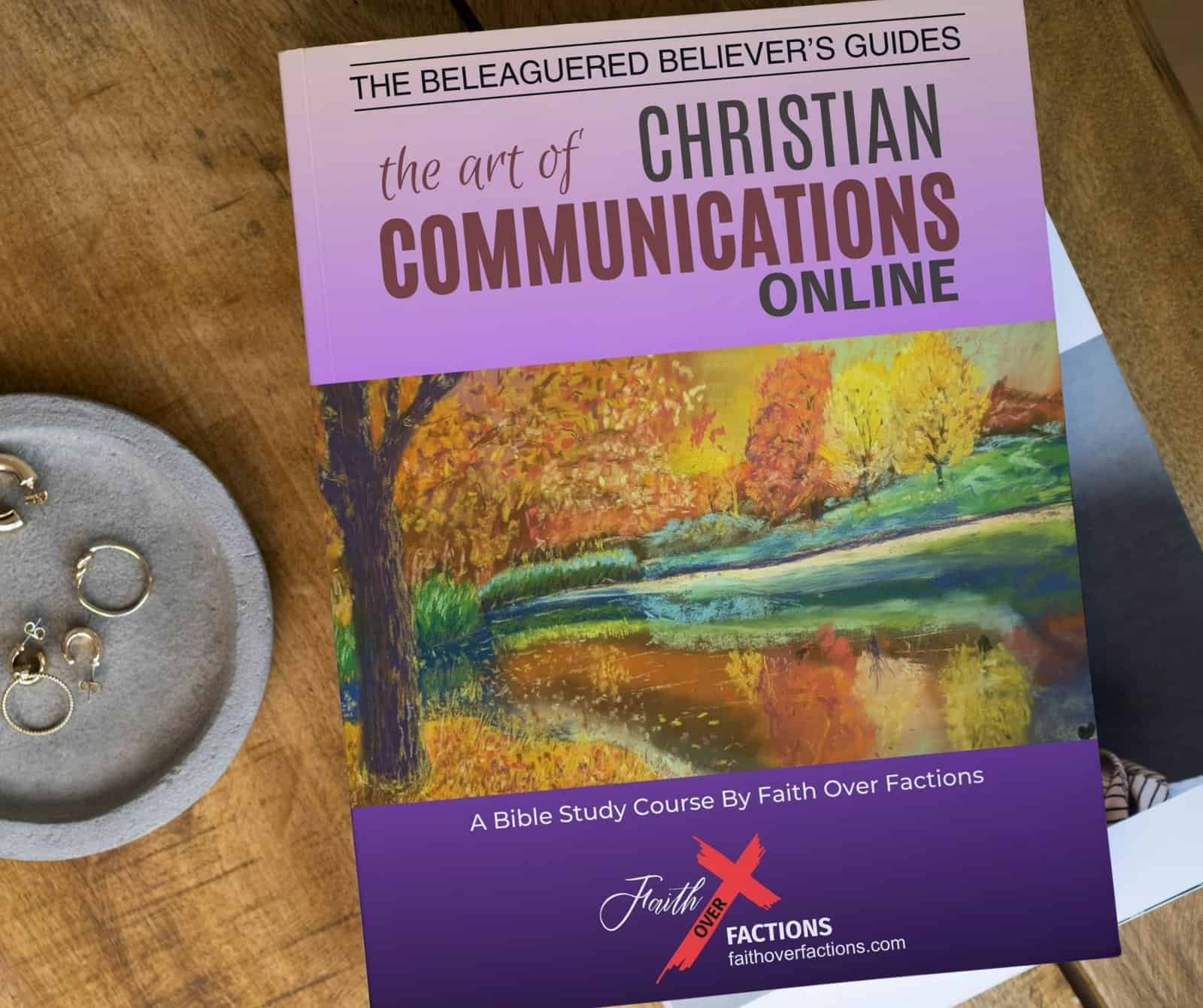
Holding to Truth Without Gripping Control
We live in a time when the lines between faith and institution, truth and tradition, are often blurred. In this post, we’re exploring what it truly means to be anchored in God’s Word without becoming entangled in manmade systems.
Can we hold tightly to Scripture—boldly, faithfully—without holding tightly to control, hierarchy, or fear? What if the Holy Spirit is inviting us into a way that’s rooted in truth but free from rigid dogma and legalistic approaches to righteousness? Let’s find out together.
Key Scripture Passage
“And now, just as you accepted Christ Jesus as your Lord, you must continue to follow him. Let your roots grow down into him, and let your lives be built on him. Then your faith will grow strong in the truth you were taught, and you will overflow with thankfulness.”
Colossians 2:6-7 (NLT)
The Issue: When Roots Become Chains
Many of us have encountered versions of Christianity where rules replace relationship, and human authority overshadows the Holy Spirit. It might come through rigid church systems, guilt-based teaching, or the idea that only certain people are “qualified” to lead. These approaches often elevate tradition or hierarchy above the living Word, creating barriers instead of bridges to Christ.
Yet the Bible teaches that where the Spirit of the Lord is, there is freedom (2 Corinthians 3:17). Jesus didn’t come to bind us with new chains—He came to set us free from the old ones (John 8:36). When faith is reduced to rules and roles, we lose sight of the vibrant, Spirit-led journey we were meant to walk (Galatians 5:1).
Scripture wasn’t given to cage us—it was given to set us free. And that freedom is meant to draw us deeper into Christ, not deeper into control.
Cultural / Historical Context
In Paul’s time, the early Church was navigating a major shift—from the law of Moses to the grace of Christ. Jewish converts who had grown up under the weight of ritual law were now walking alongside Gentile believers who had no such background. This raised tension: How much of the old covenant still applied? Should new believers be circumcised? Should they follow food laws, observe holy days, or visit the temple?
Some religious leaders insisted on imposing these practices, attempting to merge grace with old regulations (Acts 15:1-5). Paul, however, made it clear that salvation and spiritual maturity come through Christ and the indwelling of the Holy Spirit—not through law-keeping (Galatians 3:2-3). He argued fiercely that clinging to religious requirements actually nullified the power of the cross (Galatians 5:2-4).
Just like today, early believers had to decide: would they trust in God's Spirit to lead and mature them, or would they cling to manmade systems of control? The choice between grace and rigidity has always been before the Church—and still is.
Biblically Grounded Solution
Jesus promised that the Holy Spirit would guide us into all truth (John 16:13). That promise wasn’t made to an elite group or religious caste—it was given to all who follow Him. Truth isn’t the private possession of institutional gatekeepers; it is the Spirit’s gift to every believer, leading us not just to knowledge, but to transformation.
Throughout the New Testament, ministry is described not as a top-down structure but as a mutual and Spirit-empowered calling. Paul wrote that “the manifestation of the Spirit is given to each one for the profit of all” (1 Corinthians 12:7). Peter reminded believers that they are a royal priesthood (1 Peter 2:9), not spectators watching a performance from the pulpit. Ministry belongs to the whole Body—not a hierarchy.
As A.W. Tozer once wrote, “The church is a body in which every member should function.” Titles and traditions may have their place, but they are never the source of spiritual authority—God’s Spirit is. When we submit to the Spirit, rather than to systems of control, we find a living faith that produces humility, unity, and growth (Ephesians 4:15-16).
We’re called to be rooted in Scripture—absolutely—but not rigid in religious systems that God never ordained. When the Word and the Spirit work together in us, the result is not control—it’s freedom, clarity, and the flourishing of every member of Christ’s Body.
Action Steps
1. Ask Where You’ve Added Burdens
Take an honest look at your walk with Christ. Have you unintentionally taken on expectations, rules, or rituals that God never required? Write them down. Ask the Holy Spirit to help you distinguish between what is truly biblical and what has been added by culture, tradition, or fear. For example, you might realize you’ve believed that missing a Sunday service makes you less spiritual—when Scripture emphasizes faith working through love, not law (Galatians 5:6). Jesus warns against “teaching human traditions as if they were the word of God” (Mark 7:7-8), so begin the process of untangling.
2. Invite the Holy Spirit to Teach You
Set aside time for quiet listening and prayerful reading of Scripture. Ask God to illuminate the Word and guide you into understanding (John 16:13). The Holy Spirit is not reserved for pastors or scholars—He is promised to all who believe (Acts 2:17). You don’t need a degree or a title to understand the heart of God. Consider starting with a simple prayer: “Jesus, teach me today.” Open your Bible and let Him lead. Even if you begin with one verse, He is faithful to speak.
3. Practice Mutual Ministry
Instead of looking up to spiritual “experts,” look around. Who in your circle needs encouragement, prayer, or insight? Offer what you have, and receive what others share. Ministry is not performance—it’s participation. Paul says that every part of the Body matters (1 Corinthians 12:12-27), and that each believer has something to offer (Romans 12:4-8). Maybe it’s a text to a struggling friend, a shared meal with someone lonely, or a prayer you send in a voice message. These small actions carry the power of Christ’s love.
4. Let Go of What No Longer Brings Life
If a belief, habit, or tradition feels more like a burden than a blessing, bring it to God. Ask: does this help me love better (1 Corinthians 13:2)? Does it deepen my walk with Christ, or is it something I’m doing out of guilt or obligation? If not, release it with prayer and courage. Jesus said that His yoke is easy and His burden is light (Matthew 11:29-30). Let go of anything that doesn’t align with His heart, even if it once felt “holy.” Growth often means pruning (John 15:2), and God always prunes with love.
Supporting Scripture
The Conclusion of the Matter
To be rooted in Scripture is not to be bound by systems, but to be grounded in the living Word—Jesus Himself. When we are led by the Holy Spirit and not by institutional expectations, our faith becomes vibrant, personal, and freeing. We’re not called to mimic religious traditions for their own sake—we’re called to follow Christ in humility, truth, and love (Galatians 5:13). That’s the invitation: Rooted in Scripture. Led by the Spirit. Loving in truth. That is the freedom Christ offers—not bondage to manmade systems, but life more abundant (John 10:10).
This freedom doesn’t mean we reject all structure or community—it simply means we discern the difference between what nurtures spiritual growth and what stifles it. Systems and traditions that align with Christ’s heart and the Spirit’s guidance can be helpful and edifying. But they must always serve the truth, not replace it. When structure becomes the focus rather than the fruit, we lose sight of the One we’re called to follow. Rooted living is not lawless—it’s just rightly prioritized.
Have you ever felt trapped by religion instead of freed by Christ? Has a rulebook ever gotten in the way of relationship? You’re not alone—and you’re not without hope. Share your reflections in the comments or on social media using #RootedNotRigid. Let’s reclaim the joy of Spirit-led living—together.







